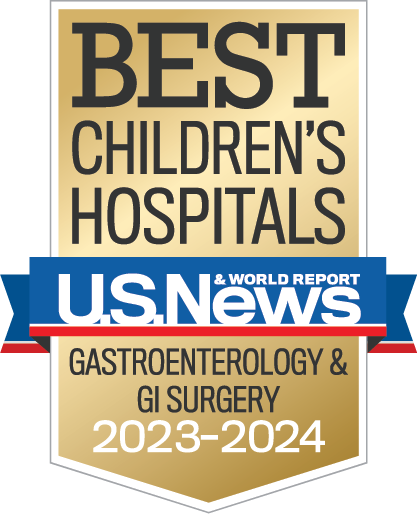- Doctors & Departments
-
Conditions & Advice
- Overview
- Conditions and Symptoms
- Symptom Checker
- Parent Resources
- The Connection Journey
- Calm A Crying Baby
- Sports Articles
- Dosage Tables
- Baby Guide
-
Your Visit
- Overview
- Prepare for Your Visit
- Your Overnight Stay
- Send a Cheer Card
- Family and Patient Resources
- Patient Cost Estimate
- Insurance and Financial Resources
- Online Bill Pay
- Medical Records
- Policies and Procedures
- We Ask Because We Care
Click to find the locations nearest youFind locations by region
See all locations -
Community
- Overview
- Addressing the Youth Mental Health Crisis
- Calendar of Events
- Child Health Advocacy
- Community Health
- Community Partners
- Corporate Relations
- Global Health
- Patient Advocacy
- Patient Stories
- Pediatric Affiliations
- Support Children’s Colorado
- Specialty Outreach Clinics
Your Support Matters
Upcoming Events
Child Life 101
Wednesday, June 12, 2024Join us to learn about the work of a child life specialist, including...
-
Research & Innovation
- Overview
- Pediatric Clinical Trials
- Q: Pediatric Health Advances
- Discoveries and Milestones
- Training and Internships
- Academic Affiliation
- Investigator Resources
- Funding Opportunities
- Center For Innovation
- Support Our Research
- Research Areas

It starts with a Q:
For the latest cutting-edge research, innovative collaborations and remarkable discoveries in child health, read stories from across all our areas of study in Q: Advances and Answers in Pediatric Health.


Ulcerative Colitis Treatment for Kids and Teens
We pioneer and deliver some of the most groundbreaking treatments available for digestive disorders in children of all ages.

The Pediatric Inflammatory Bowel Disease Center at Children’s Hospital Colorado is the only full-service, multidisciplinary program of its kind in the region. It is also the only program in the area to participate in ImproveCareNow — a community where patients, parents, clinicians and researchers work together to improve the lives of children with IBD.
In addition to board-certified pediatric gastroenterologists, our team includes specialists such as registered dietitians, psychologists and surgeons. This team approach allows us to complete a comprehensive evaluation of each patient and develop a corresponding treatment plan that provides holistic care.
Ulcerative colitis treatment options
There is not a cure for ulcerative colitis, but a variety of treatment methods can regulate the immune system and help keep symptoms under control. This can include medication, a balanced diet and surgery.
Medication for ulcerative colitis
Anti-inflammatory medication is often the first method of treatment for ulcerative colitis symptoms. Our physicians take into account a child’s overall health, the severity of their ulcerative colitis and other individual factors when making a medication recommendation. There are four categories of medication, administered by mouth or shot:
- Aminosalicylates work in the lining of the digestive system to decrease inflammation.
- Corticosteroids suppress the body’s entire immune system response.
- Immunomodulators control the immune system so it cannot produce ongoing inflammation.
- Biologic therapies are antibodies that stop certain proteins in the body from causing inflammation.
Nutrition for ulcerative colitis
A balanced diet can also improve symptoms and help prevent flares. Our registered dietitians teach patients with ulcerative colitis and their families how to incorporate adequate amounts of protein, fat and carbohydrates into their diet, along with vitamins, minerals and water. These dietitians are also experts in specialized diets, such as the specific carbohydrate diet and the low FODMAP diet. FODMAP is an acronym that stands for fermentable oligo-, di-, mono-saccharides and polyols, short-chain carbohydrates that are difficult to digest.
Patients may need to help their child avoid dairy and foods high in processed sugar or fat. These foods can cause cramping, bloating and diarrhea. Alternatively, low-fiber fruits like bananas and cantaloupe, as well as lean protein and refined grains, can be safer options.
Ulcerative colitis surgery
Although many kids are able to successfully manage their ulcerative colitis with medication and diet, in severe cases, it may be necessary to surgically remove the large intestine. Indications for surgery include acute severe ulcerative colitis, uncontrolled bleeding, toxic megacolon and perforation with abdominal abscess.
The standard surgery is called a proctocolectomy, which typically involves removal of the large intestine and rectum to restore bowel function. Our surgeons use minimally invasive surgical techniques.
What to expect from ulcerative colitis treatment
The goal of ulcerative colitis treatment is to suppress inflammation of the large intestine and allow the tissue to heal. This can lessen symptoms like diarrhea, bleeding and abdominal pain or even eliminate the symptoms for an extended period of time, called remission. But because ulcerative colitis is a chronic condition, symptoms will likely come and go throughout childhood and adulthood. With proper, consistent treatment, people with ulcerative colitis can extend periods of remission and reduce the length of flares.
New treatments for ulcerative colitis
In addition to traditional treatment methods, we lead research efforts and participate in clinical trials to find and evaluate new treatments for ulcerative colitis. This means our patients have access to some of the most cutting-edge treatments available.
Frequently asked questions about ulcerative colitis treatment
Does ulcerative colitis get worse over time?
Ulcerative colitis symptoms come and go throughout childhood and adulthood. Consistent treatment helps control symptoms and encourage remission.
Does ulcerative colitis increase the risk for colon cancer?
Uncontrolled inflammation can lead to cancerous changes in the colon. A Children’s Colorado gastroenterologist will monitor your child for precancerous changes.
What is the difference between ulcerative colitis and Crohn’s disease?
Both are inflammatory bowel diseases, but they affect different parts of the digestive system. Ulcerative colitis affects only the large intestine, while Crohn’s disease can affect any part of the digestive system.
Does ulcerative colitis shorten life span?
No, ulcerative colitis does not shorten life span.

Looking for a second opinion?
Whether you’re still searching for a diagnosis or exploring treatment options for your child, we’re here to help. Learn how to request a second opinion from U.S. News & World Report’s #3 pediatric gastroenterology and gastrointestinal surgery program.
Request a second opinion from our Digestive Health Institute



 720-777-0123
720-777-0123



